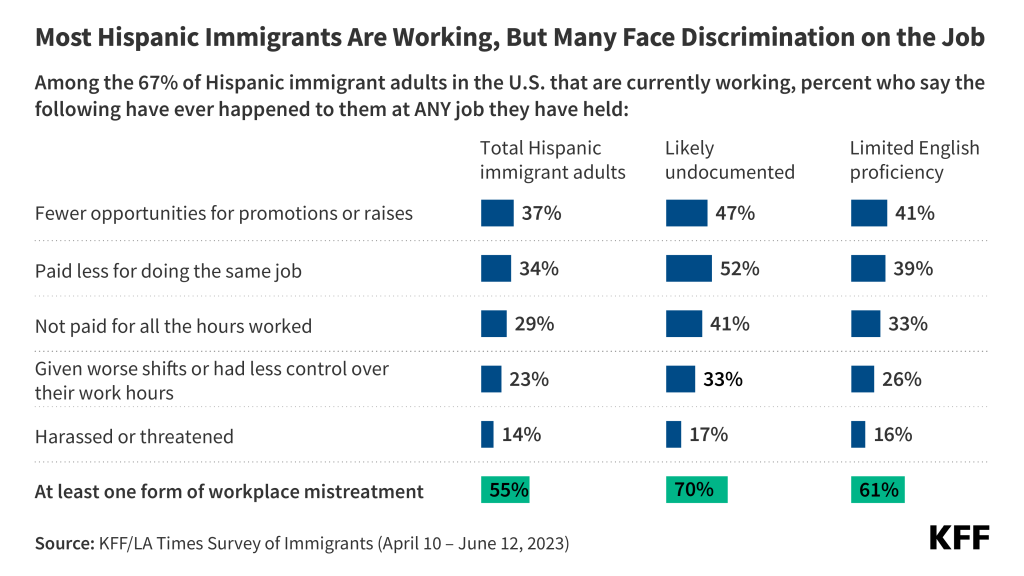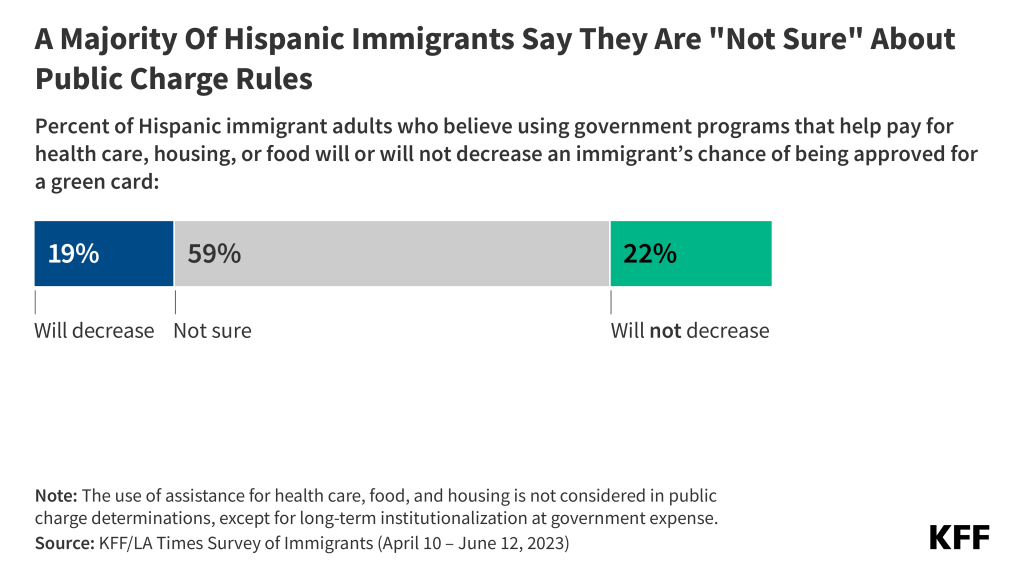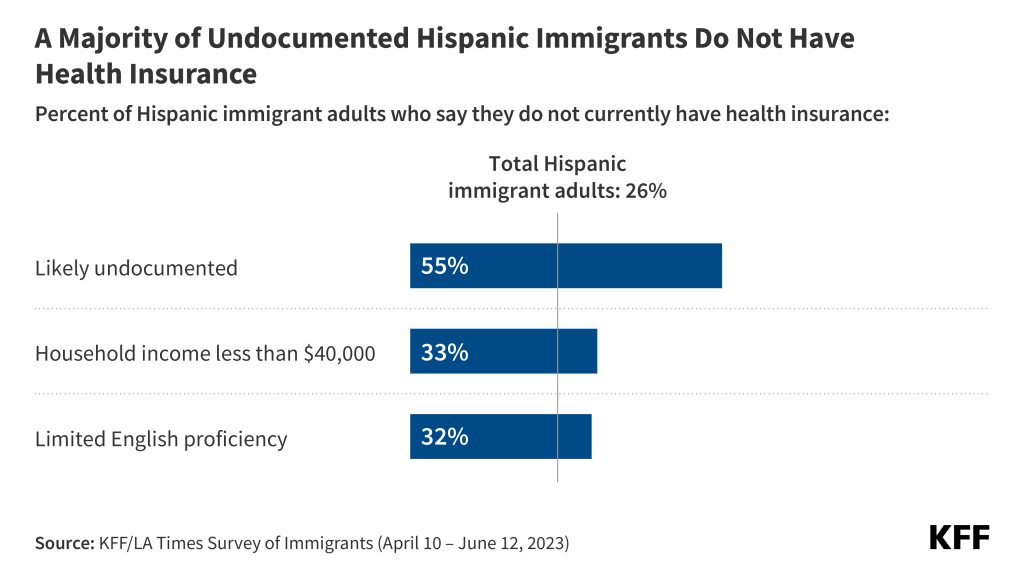
The independent source for health policy research, polling, and news.
3 Charts: Hispanic Immigrants’ Experiences in the United States
Hispanic immigrants comprise the largest group of immigrants in the United States, and one in three Hispanic or Latino adults in the U.S. are immigrants. Most report a higher quality of life in the U.S. than in their countries of birth and believe their children’s lives will be better than their own. A large majority are working, and many send money to their family living outside the U.S.
Hispanic immigrants are more likely than other immigrant groups to have limited English proficiency, be noncitizens, have lower incomes, lack health insurance, and have lower levels of educational attainment. About a quarter are likely undocumented. Despite such challenges, they remain resilient and optimistic.
These three charts explore select aspects of the Hispanic immigrant experience in the U.S., drawing on findings from a new KFF report based on data from the KFF-Los Angeles Times Survey of Immigrants. The survey provides a deep understanding of immigrant experiences, reflecting their varied countries of origin and histories, citizenship and immigration statuses, racial and ethnic identities, and social and economic circumstances.
1) Sixty-seven percent of Hispanic immigrants are employed, but about half of those who are employed say they have faced unfair treatment in the workplace, such as being paid less for doing the same job as others, not being paid for all hours worked, or getting fewer opportunities for promotions and raises than people born in the U.S. These experiences are even more common among those who are likely undocumented or have limited English proficiency.

2) Most Hispanic immigrants are uncertain about public charge rules, that is, whether using assistance for food, housing, and health care may affect their immigration status. This reflects broader concerns among some Hispanic immigrants, especially among those who are likely undocumented, that they or a family member could be detained or deported.

3) Many Hispanic immigrants lack health insurance, especially those who are likely undocumented. Uninsured rates are also high among those who have lower incomes and limited English proficiency. These high rates reflect Hispanic immigrants’ disproportionate employment in lower income jobs that do not offer employer-based insurance and immigrant eligibility restrictions for public coverage.

For more about Hispanic immigrants’ experiences beyond these three charts, including their reasons for coming to the U.S., their employment and financial situation, their experiences with discrimination and health care, and their understanding of immigration policies, read our new report, “Most Hispanic Immigrants Say Their Lives Are Better In The U.S. But Face Financial And Health Care Challenges: The 2023 KFF/LA Times Survey of Immigrants.”